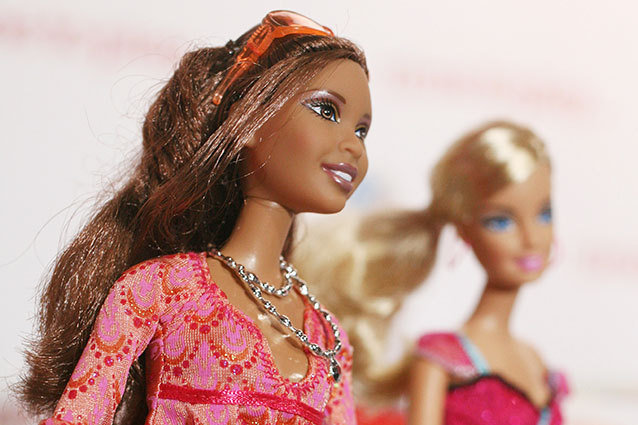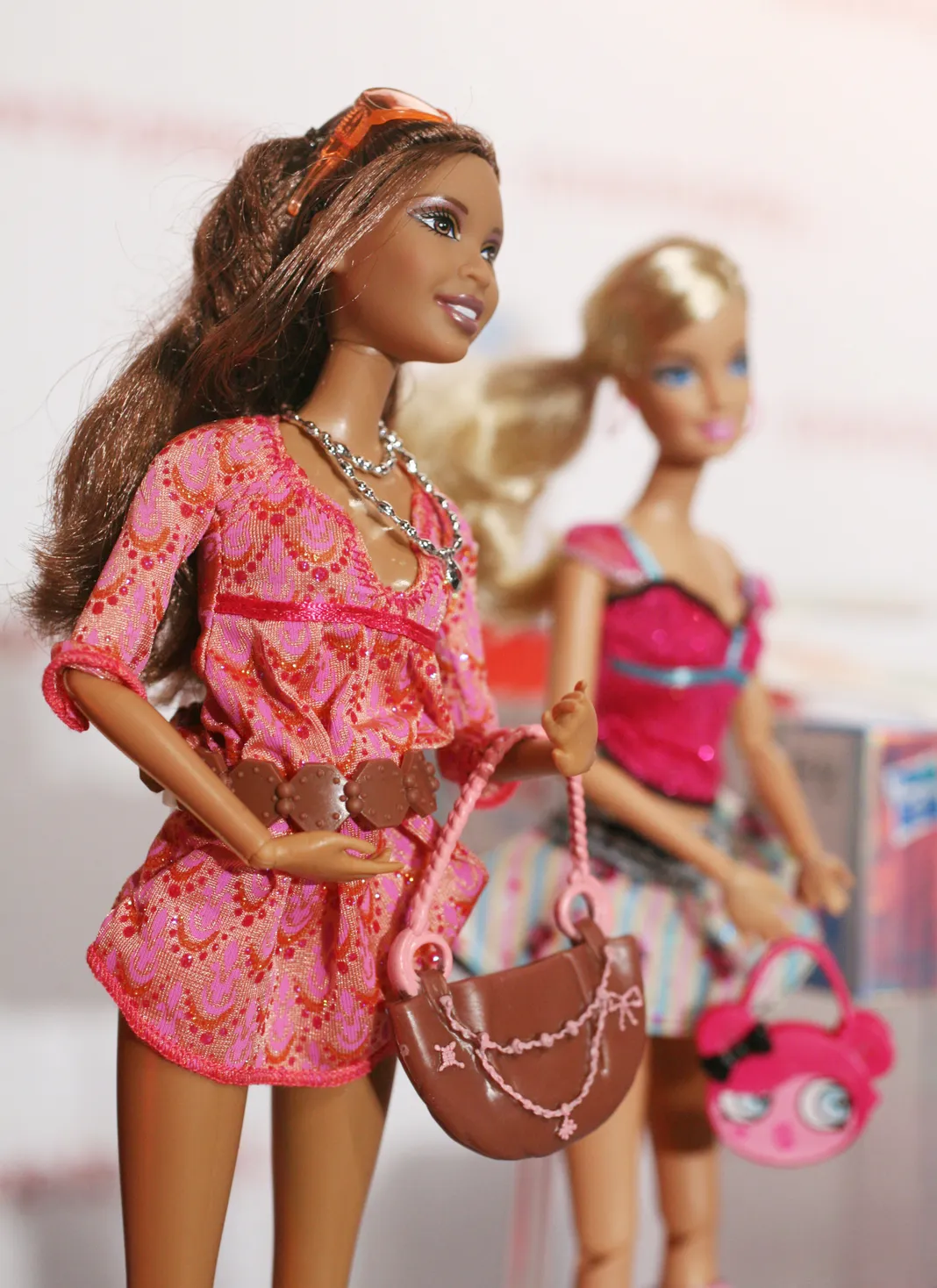
In case you missed it, it’s 2013. You’d think that by now, no one would need to petition for Barbie birthday supplies that are indicative of the diversity of our nation. Apparently not.
Representing different ethnicities is just too hard for toy giant Mattel, at least that’s what they just told one mother who petitioned to see birthday party supplies with more variety than just the grinning mug of one blonde Barbie. namely, her daughter wanted birthday items that also feature a black Barbie. Mattel couldn’t comply, because duh, getting people to buy Barbie supplies without the iconic blondie at the center is impossible — never mind the fact that ethnically diverse dolls make them millions of dollars every single day.
Karen Green Braithwaite makes that exact point in her petition on Change.org. Barbie has won over Braithwate’s daughter with the brand’s ability to give little girls the opportunity to see themselves reflected in a doll whose ambition knows no bounds. Why is it so difficult to see that in all areas of their merchandizing?
According to the Observer, representatives from Mattel called Braithwaite into a conference call and told her that licensees wouldn’t carry the supplies and that focus groups tested negatively for diverse paper plates, cups, and napkins. But it seems rather strange that the company took the time to not only respond to their petitioner, but respond with such a negative answer. The Barbie name has already come under fire for its unrealistic depictions of women, many critics connecting Barbie’s shape to the body image issue rampant among young women. Why would Mattel want to put out the word that they’ve simply given up on diversity in some elements of their business? Why not just tell the petitioner they’d “look into it” or give some other, more diplomatic response?
Of course, a spokesperson for Mattel says they did just that. “What we said was that we are looking at how we can work with our partners to redesign a new line as the current line of Barbie party products has been discontinued … Development of new products takes a minimum of 18 months from creative development to sell in to production to being on shelves in stores and as such consumers will not see any new product in the near term,” they said.
If, however, Mattel is correct and they’ve not been able to sell more ethnically diverse party supplies, Barbie still may be the problem, however unintentionally. Barbie is the original doll, the star amongst the Midges, Skippers, Teresas, and Kens. It’s always been her show, and as much as her character is a blank slate for whatever adventures young kids can dream up (heck, there’s even a President Barbie, years before we’ll see a woman as the POTUS), her racially limited universe promotes an ideal that doesn’t at all represent the nation we live in.
Take a single look at Mattel’s Barbie website and you can see there’s not an inch that isn’t occupied by a bouncy, smiling blonde girl. If you click around enough, you can eventually find Barbie’s friends, which include a black girl named Nikki, a gluten-free girl named Teresa, and a vaguely Latina girl named Raquelle — but without the tenacity to comb over every inch of the website, the message is decidely blonde. There isn’t a single featured photo or graphic on the website’s main pages that shows our main character, Barbie, palling around with her diverse group of friends, and you’d be hard-pressed to find a page that features Teresa or Nikki instead of Miss Barbie. And if this is the strong message Mattel is promoting, it’s no wonder they have had trouble selling diverse merchandise: it comes in opposition to the message the brand has cultivated with its one-shade-fits-all presentation.
The birthday supplies are admittedly less popular and lucrative than the dolls, but this is not a small issue. It feeds into a larger suggestion: that the other dolls are lesser dolls and that only Barbie can be the star. But on a day when the little girl (or boy) in question is supposed to “celebrate themselves” (as Braithwate puts it in her petition), shouldn’t he or she be able to choose which character is the star? Wouldn’t Barbie, herself, want her other friends to have their special days, too? Shouldn’t kids have a merchandise choice that puts the doll that reflects themselves best at center stage?
It’s something even Disney — whose lineup of Princesses includes Middle Eastern Princess Jasmine and the newest edition, a young black woman named Tiana — has managed to change. Disney’s Princess birthday supplies feature all the princesses in equal measure, with sets of cups and napkins that give each lady her own featured moment. With that in mind, it seems strange to think that the best Barbie can do is to add small images of a brown-skinned Barbie and a brunette to the borders of a handful of party supplies, while everything else is a parade of Barbie’s big blonde head.
Of course, if market research says it doesn’t sell, Mattel’s hands are somewhat tied: they’re a business, not a non-profit group. But perhaps that just means it’s time for parents to take up some agency and instead of trying to change a stalwart brand, reevaluate which toy lines to expose their kids to. If she can’t handle true diversity and inclusion, then maybe it’s simply time to say Bye-bye, Barbie.
Follow Kelsea on Twitter @KelseaStahler
More:
True Love Makes Demi Lovato ‘Wanna Act Like a Girl’
Miranda Kerr Will Always Be an Angel, Says Victoria Secret
Miley Cyrus Vs. Barbie: Battle of the Blondes
From Our Partners: Eva Longoria Bikinis on Spring Break (Celebuzz)
Eva Longoria Bikinis on Spring Break (Celebuzz) 33 Child Stars: Where Are They Now? (Celebuzz)
33 Child Stars: Where Are They Now? (Celebuzz)


